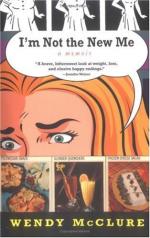On the evening of May 23d he received his orders to lead his regiment on the extreme left of the Union lines in the advance into Virginia. The part assigned him was the occupation of Alexandria. He worked almost all night in his tent, arranging the business of his regiment, and then wrote a touching letter of farewell to his parents. Anticipating an engagement, he said: “It may be my lot to be injured in some manner. Whatever may happen, cherish the consolation that I was engaged in the performance of a sacred duty; and to-night, thinking over the probabilities of the morrow and the occurrences of the past, I am perfectly content to accept whatever my fortune may be, confident that He who noteth even the fall of a sparrow will have some purpose even in the fate of one like me. My darling and ever-loved parents, good-by. God bless, protect, and care for you.” These loving and filial words were the last that came from his pen.
The Zouaves were embarked before dawn the next morning. The celerity and order with which Ellsworth performed his work excited the admiration and surprise of Admiral Dahlgren, who commanded the navy yard.
The town of Alexandria was occupied without resistance; and Ellsworth, with a squad of Zouaves, hurried off to take possession of the telegraph office. On his way he caught sight of a Confederate flag floating from the summit of the Marshall House. He had often seen, from the window of the Executive Mansion in Washington, this self-same banner flaunting defiance; and the temptation to tear it down with his own hands was too much for his boyish patriotism. Accompanied by four soldiers only and several civilians, he ran into the hotel, up the stairs to the roof, and tore down the flag; but coming down was met on the stairs by the hotel-keeper and shot dead. His assassin perished at the same moment, killed by Frank E. Brownell.
Ellsworth was buried from the East Room of the White House by the special order of the President, who mourned him as a son. Many brave and able officers were to perish in the four years that followed that mournful day; but there was not one whose death was more sincerely lamented than that of this young soldier who had never seen a battle; and it is the belief of his friends that he had not his superior in natural capacity among all the most eminent heroes of the war. But who will care to hear this said? If Napoleon Bonaparte had been killed at the siege of Toulon, who would have listened to some grief-stricken comrade’s assertion that this young Corsican was the greatest soldier since Caesar? I have written these lines merely to show how simple, kindly, and heroic a heart Colonel Ellsworth had—and not to claim for him what can never be proved.




